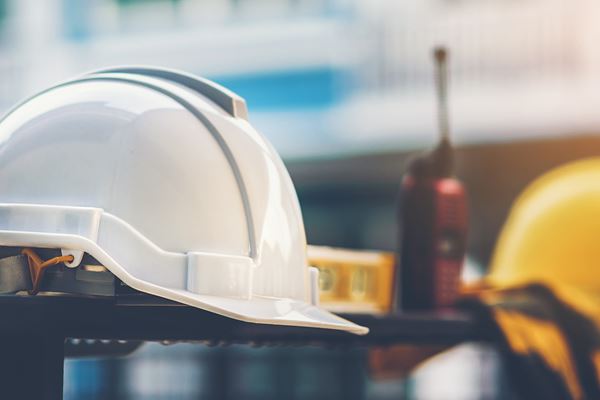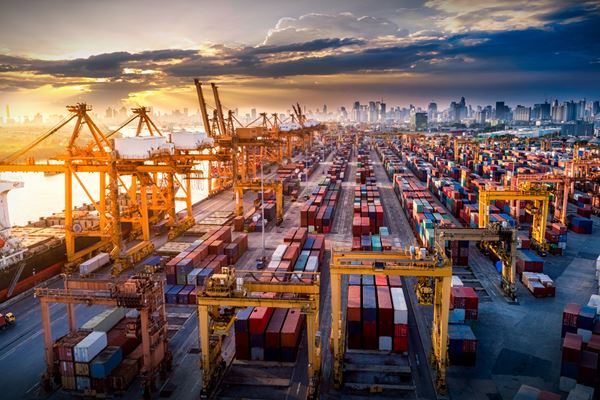8 Risks and Impacts the Construction Industry is Experiencing During COVID-19

Across the globe, the construction industry has been faced with uncertainty due to project shutdowns, labor cuts, and material shortages during COVID-19. In the U.S., a recent survey of construction industry leaders reported that almost half of existing construction projects will experience delays up to three months and roughly 20% will experience delays of six months or more.1 These are just a few examples of the major toll the construction industry has already experienced.
During this unprecedented time, various contractors have canceled or delayed construction projects, furloughed or laid off workers, and applied for aid under protection programs. All devastating but necessary steps to continue business. Due to these extensive measures, the construction industry has encountered various risks and impacts during COVID-19, many of which it will see for months to come.
8 Risks and Impacts Facing the Construction Industry
1. Employee Health and Safety Risks
Construction companies will encounter various health and safety risks during this time, as a deemed essential business. Safety plans must be revised to include proper training regarding social distancing, personal hygiene, and sickness reporting. In addition to providing personal protective equipment (PPE) for working employees and keeping work areas sanitized and disinfected at all times.
2. Project Suspension and Mitigation
During COVID-19, some construction sites have executed project shutdowns due to stay-at-home and social distancing mandates, personal decisions, lack of available inspections, or shortage of manpower and materials. As this takes place, mitigation measures such as weatherproofing, implementing project site upkeep, and addressing safety and security concerns are crucial.
3. Lack of Revenue
As owners and contractors see revenue income decreasing, tough decisions may have to be made in order to stay afloat, such as withholding delay damages or slowly releasing funds for payment applications. Some projects might even fail and must be taken over by a lender for potential recovery. To mitigate risk and reduce operation capital, contractors may opt to pay subcontractors to perform the work or utilize bonded warehousing to store materials for the release of payment.
4. Labor Shortages and Reduced Production
Bankruptcies, layoffs, and reduced labor forces may occur due to the decrease of permissible work and the extent of funds owed from multiple projects. These issues are likely to affect planned production rates and schedules, resulting in loss of productivity and delays to completion.
5. Fabrication, Procurement, and Delivery of Construction Materials
Fabrication facilities may be affected by layoffs of personnel, quarantines, or other reasons, resulting in a shortage of construction products and potential cost escalation for contractors. In addition, due to decreased staff and travel restrictions, deliveries of raw materials and products from other countries may be severely delayed, and because of this, warranty periods could require extensions.
6. Client and Lender Concerns
Construction financing may be pulled back by lenders because of common and reasonable concerns of COVID-19 financial burdens and in turn, may require a delay or table of projects.
7. Quarantines and Travel Bans
COVID-19 has forced many companies to put firm restrictions in place in order to decrease the spread of the virus and keep a healthy workplace for those deemed essential. Workers diagnosed as positive for coronavirus are required to quarantine for 14 days and will not return to work until tested. In addition, travel restrictions have limited access to projects, whether state to state or country to country.
8. Legal Issues
Clauses in construction contracts need to be heavily reviewed right now, as many are up for interpretation such as force majeure provisions, delays, liquidated damages, change in law, schedule acceleration, cost escalation, and termination for convenience. Insurance policy provisions related to OCIP, CCIP, builder's risk, business interruption, and pollution may also be subject to interpretation. In addition, lien claims, and worker compensation claims may arise. Worker's compensation, in particular, is due to the potential of occupational hazards, injuries, and added physical and mental stress. Prevention and educational training are crucial.
Although the full effects of COVID-19 on construction projects are yet to be realized, contractors, developers, subcontractors, and owners should serve notice for potential insurance claims ahead of time, so the claims process is triggered and prepared for once the extent of damages and potential recovery is known.
1 https://www.agc.org/coronavirus/agc-surveys
Nuestros consultores están listos para ayudar.



